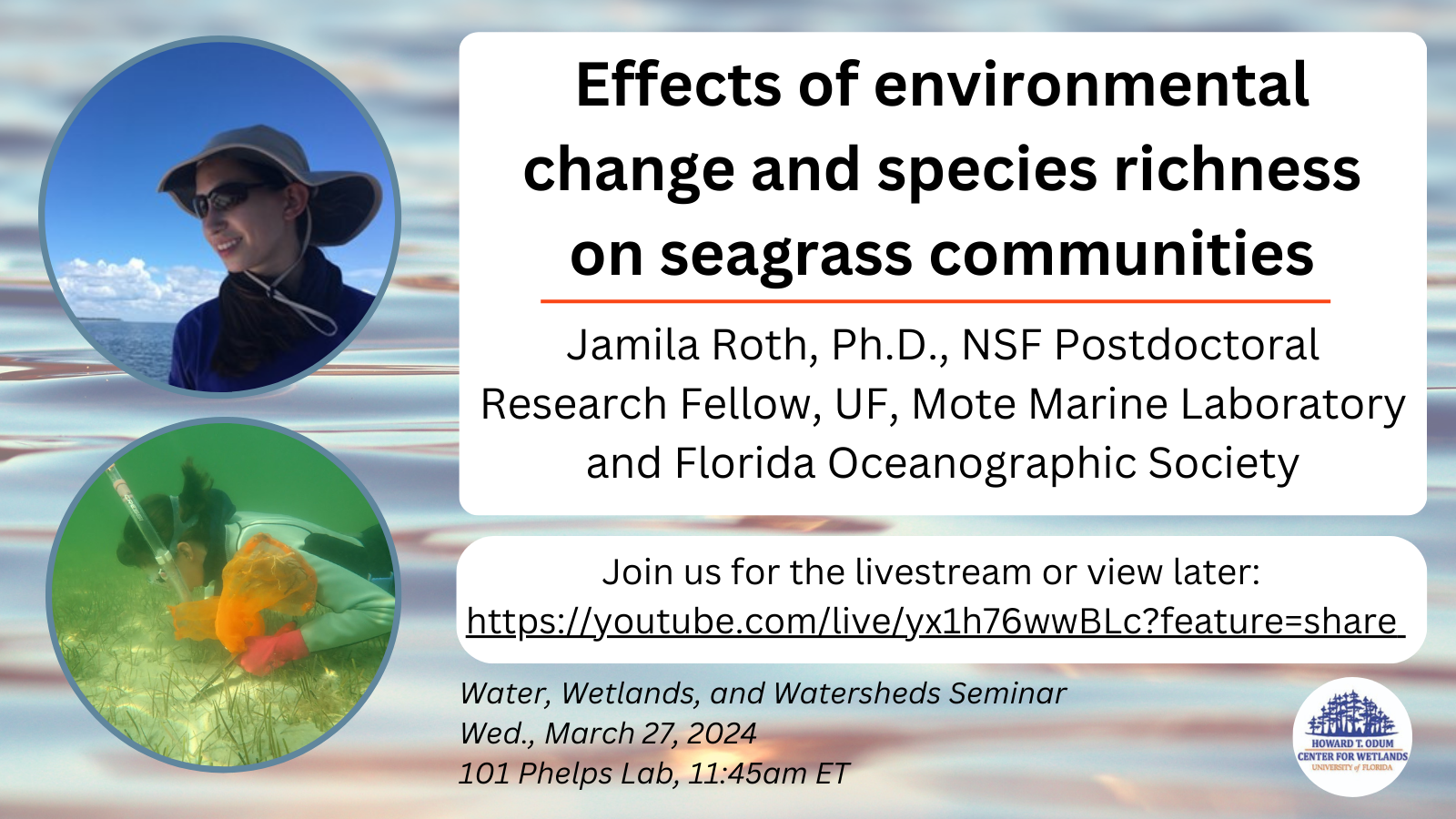
Jamila Roth, NSF Postdoctoral Research Fellow, University of Florida, Mote Marine Laboratory, Florida Oceanographic Society
Join us for the livestream March 27th, 11:45am ET: https://youtube.com/live/yx1h76wwBLc?feature=share
(Please visit our YouTube channel main page for the stream if there are any issues with the direct link.)
ABSTRACT
As a result of human activity, seagrass ecosystems are being lost at an alarming rate, and restoration efforts have experienced mixed success. Effective management of seagrass meadows requires an ecosystem-level understanding of the impact of co-occurring stressors on seagrass communities, an understanding of the factors influencing seagrass stability and ecosystem functions, and collaboration and engagement with local communities. In the northern Gulf of Mexico, seagrasses are experiencing increased rates of nutrient loading, warming temperatures, and increased grazing pressure due to tropicalization (i.e., poleward range expansion of tropical species), and more information is needed on interactions among multiple stressors and the factors influencing seagrass response to these disturbances. In this project, we investigated the impact of multiple novel stressors on seagrass ecosystems, evaluated the impact of species richness on seagrass ecosystem functions, and shared seagrass research findings with afterschool science clubs. We found that warming temperatures, nutrient loading, and grazing history may all increase seagrass susceptibility to herbivory. However, areas with multiple seagrass species exhibited higher resilience and higher invertebrate density and diversity, indicating that species richness could provide a tool to enhance ecosystem stability and ecosystem functions. Leading interactive activities about seagrass ecosystems and interactions between humans and the environment at afterschool science clubs effectively increased student understanding of key concepts directly linked to Next Generation Science Standards.
BIO
Jamila Roth is an NSF Postdoctoral Research Fellow in Biology at the University of Florida, Mote Marine Laboratory, and Florida Oceanographic Society. She is currently working with Drs. Laura Reynolds, Julie Meyer, Ashley Smyth, and Loraé Simpson to investigate interactions between environmental stressors, seagrass genotypes, seagrass rhizosphere microbial communities, and seagrass ecosystem functions. She received her PhD in Interdisciplinary Ecology from the University of Florida in 2022.
POSTCARD
